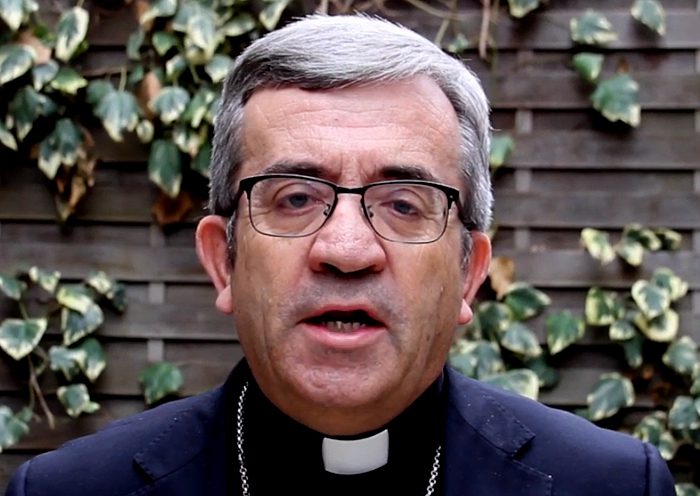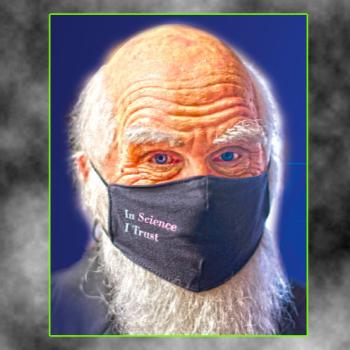HUMAN rights legislation in Spain continues to progress at an impressive pace, much to the dismay of the Catholic Church which believes the country is attempting to drive religion from public life with reforms it regards as too liberal.
After recently legalising euthanasia, the socialist coalition government voted last week to introduce a pioneering new law aimed at protecting children and adolescents against violence.

This law, described as establishing a benchmark for the rest of the world, set alarm bells ringing within Spain’s Episcopal Conference after the Minister of Social Rights, Ione Belarra, above, singled out the Catholic Church as:
An accomplice in sexual violence against children.
The Conference revealed last Friday that 220 cases had been officially reported to the Vatican over the past two decades. But Conference spokesman, Bishop Luis Argüell Garcia argued at a press conference that the problem of sex abuse was not an exclusive problem of the church and that the priests involved in the allegations were a fraction of the 31,000 who had worked in the country over the past 20 years.
He also told reporters that Spanish prosecutors had investigated, during the same period, some 220,000 allegations of child abuse among the general population.
However, he acknowledged that the church had been reluctant to address the issue in the past. The Vatican only requires allegations that have a semblance of truth to be reported in-house, not to police.

Last week we reported that the Bishop, above, attacked Spain’s growing embrace of secularism, and slammed progressive legislation.
Reacting to the planned child protection law, Garcia said:
We reckon that at certain times we have walked too slowly, we even looked away in another direction.
Spain’s leading El País newspaper had listed a total of 309 cases involving 817 victims.
On Friday the newspaper reported that the bishops’ information was:
An enormous step in the slow acknowledgement of the dimension of abuses within the Spanish Church.
But it criticised the fact that their caseload was based on records from the Vatican and not on the allegations made directly in their own dioceses, including cases reported to the offices for the attention of victims opened last year at the request of Pope Francis.
Investigations by some national episcopal bodies across Europe have brought to light thousands of cases of children and teenagers allegedly abused by members of the Catholic Church – and have opened the door for other victims to come forward.
But Argüello told reporters that the bishops’ governing body in Spain has:
No intention, as of now, of opening any investigation.
Spain’s lower house of parliament, the Congress of Deputies, voted for the legislation with an absolute majority with 268 votes in favour, 57 against and 16 abstentions.
Only the far-right Vox party and the Basque Nationalist Party (PNV) voted against the law.
Vox lawmaker Teresa López argued that the government had created the law to “clean their consciences” over its support for women’s reproductive rights, saying that if legislatiors wanted to stop violence they should address abortion.
British man set the law in motion

The new legislation is known as the “Rhodes law” in recognition of campaigning by British concert pianist James Rhodes, above, in defence of children’s rights. The pianist, a Madrid resident who suffered sexual abuse at the hands of a teacher when he was a boy, has been one of the most public faces pushing for a law to combat violence suffered by youngsters and adolescents.
In February, the BBC reported that Rhodes used social media and Spanish press and television to press his case until Spain’s Deputy Prime Minister Pablo Iglesias, of the Podemos party, announced that the Rhodes Law would be one of the new left-wing coalition government’s first reforms.
The law must now be passed in the Senate, where more amendments are likely to be presented. Given its urgency, however, the legislation may be published in the Official State Gazette (BOE) as early as June.
The goal of the new law, according to El País:
Is to spark a paradigm shift in how the defence of children’s rights is understood, just as the gender violence law also helped change attitudes on violence against women. It guarantees the rights of children and adolescents against all forms of violence, from physical and sexual violence to online harassment, and includes measures to raise awareness of violence against children, and to detect, protect and compensate victims.
The law also aims to end the impunity of serious crimes against children, such as paedophilia, by extending the statute of limitations. Under the current law, the statute of limitations for sexual crimes against children is counted from the moment the victim becomes an adult.
Under the new legislation, it will be counted when the victim turns 35. This means that crimes can still be prosecuted when the victim is at least 40 years old and up to 55 for the most serious cases.
Experts note that this is an essential step because adults who have been abused as children often take a long time realizing what happened due to memory repression.
The new legislation places Spain at the forefront of the defence of children’s rights. It establishes measures to prevent the double victimisation that occurs during the judicial process when the victim is forced to relive their trauma. It strengthens the right of youngsters to be informed and listened to.
It gives the government a mandate to create specialised courts on violence against children. And it puts in place a raft of initiatives aimed at prevention, such as training for professionals who work with children and the establishment of protocols for schools, sports centers and children’s facilities.
Said Lucía Muñoz, from the Unidas Podemos party:
We could become a benchmark for the world.
The child protection law is the first legislative measure from the Social Rights Ministry, which is headed by Belarra, from Unidas Podemos. Speaking to Congress, Belarra criticised the Spanish Catholic Church for its “complicity” in covering up sexual crimes against children, and made a direct address to the victims of child abuse.
If someone tries to make you feel to blame for what has happened to you, I want you to listen closely to my words: nothing that has happened to you is your fault. Ask for help because someone is going to help you.

 I’d love a cup of coffee
I’d love a cup of coffee








